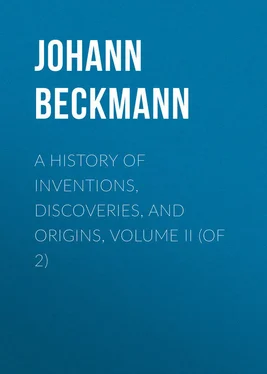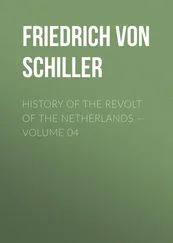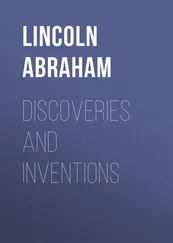Johann Beckmann - A History of Inventions, Discoveries, and Origins, Volume II (of 2)
Здесь есть возможность читать онлайн «Johann Beckmann - A History of Inventions, Discoveries, and Origins, Volume II (of 2)» — ознакомительный отрывок электронной книги совершенно бесплатно, а после прочтения отрывка купить полную версию. В некоторых случаях можно слушать аудио, скачать через торрент в формате fb2 и присутствует краткое содержание. Жанр: foreign_antique, foreign_prose, на английском языке. Описание произведения, (предисловие) а так же отзывы посетителей доступны на портале библиотеки ЛибКат.
- Название:A History of Inventions, Discoveries, and Origins, Volume II (of 2)
- Автор:
- Жанр:
- Год:неизвестен
- ISBN:нет данных
- Рейтинг книги:4 / 5. Голосов: 1
-
Избранное:Добавить в избранное
- Отзывы:
-
Ваша оценка:
- 80
- 1
- 2
- 3
- 4
- 5
A History of Inventions, Discoveries, and Origins, Volume II (of 2): краткое содержание, описание и аннотация
Предлагаем к чтению аннотацию, описание, краткое содержание или предисловие (зависит от того, что написал сам автор книги «A History of Inventions, Discoveries, and Origins, Volume II (of 2)»). Если вы не нашли необходимую информацию о книге — напишите в комментариях, мы постараемся отыскать её.
A History of Inventions, Discoveries, and Origins, Volume II (of 2) — читать онлайн ознакомительный отрывок
Ниже представлен текст книги, разбитый по страницам. Система сохранения места последней прочитанной страницы, позволяет с удобством читать онлайн бесплатно книгу «A History of Inventions, Discoveries, and Origins, Volume II (of 2)», без необходимости каждый раз заново искать на чём Вы остановились. Поставьте закладку, и сможете в любой момент перейти на страницу, на которой закончили чтение.
Интервал:
Закладка:
I am inclined to think that the cooling of water, in ancient times, of which I have already spoken, is not to be ascribed so much to the boiling as to the jars being kept continually wet, and to the air to which it was exposed. A false opinion seems therefore to have prevailed respecting the cause; and because it was considered to be the boiling, many have not mentioned the real cause, which appeared to them only to afford a trifling assistance, though it has been remarked both by Galen and Athenæus. We know at present that coolness is produced by evaporation. A thermometer kept wet in the open air falls as long as evaporation continues 387 387 [In India, one mode of cooling wines, is to suspend the bottle in a thick flannel bag, or folds of blotting-paper, kept constantly wetted, and placed in the sun’s rays, or a current of air, or both; by which means the evaporation, and therewith intense coldness, is produced.]
. With sulphuric æther, and still better with that of nitre, which evaporates very rapidly, water may be made to freeze even in the middle of summer; and Cavallo saw in summer a Fahrenheit’s thermometer, which stood at 64°, fall in two minutes, by means of æther, to +3, that is to 29° below the freezing-point 388 388 Philosoph. Transact. vol. lxxi. part ii. p. 511. [M. Boutigny’s beautiful experiment of making ice in a red-hot crucible is a striking phænomenon of this kind. It is thus performed: – A deep crucible of platinum is heated to a glowing red heat; liquid sulphurous acid, which has been preserved in the fluid state by a freezing mixture, and some water are then at the same instant poured into the crucible. The rapid evaporation of the volatile sulphurous acid, which boils below the freezing-point of water, produces such an intense degree of cold as to freeze the water, which is then thrown out of the crucible as a solid lump.]
.
On this principle depends the art of making ice at Calcutta and other parts of India, between 25° 30′ and 23° 30′ of north latitude, where natural ice is never seen unless imported. Trenches two feet deep, dug in an open plain, are strewed over with dry straw; and in these are placed small shallow unglazed earthen pans, filled with water at sunset. The ice which is produced in them is carried away before sunrise next morning, and conveyed to an ice-cellar fifteen feet deep; where it is carefully covered with straw to be preserved from the external heat and air. A great deal, in this process, depends upon the state of the atmosphere. When calm, pure and serene, it is most favourable to the congelation; but when the winds are variable, or the weather heavy and cloudy, no ice is formed; and the same is often the case when the nights are raw and cold 389 389 Philosoph. Transact. vol. lxxi. part ii. p. 252: the process of making ice in the East Indies; by Robert Barker.
.
It was once believed that this freezing was occasioned principally by the water having been boiled; but it seems to be owing much rather to evaporation 390 390 [There is no question that this refrigeration is caused by the evaporation of a portion of the water, whereby a very large quantity of heat becomes latent in the vapour. A clear serene sky being necessary for the success of the production of the ice, would tend to show that the further loss of heat by radiation, which always ensues to a great extent at nights, when the sky is clear, is necessary.]
. It is not however said that the vessels are kept continually wet on the outside, but that they are unglazed, and so porous or little burnt, that the water oozes through them; and on that account their exterior surface appears always moist 391 391 … a number of small, shallow, earthen pans. These are unglazed, scarce a quarter of an inch thick, about an inch and a quarter in depth, and made of an earth so porous, that it was visible from the exterior part of the pans, the water had penetrated the whole substance. [Our ordinary wine-coolers, which consist of extremely porous vessels, act from evaporation. A portion of the water, which is placed in the interior of the cooler, evaporates through its pores, and produces cold by rendering a considerable amount of heat latent.]
. By vessels of this kind the trouble of wetting is saved. What has been said respecting the influence of the weather serves, in some measure, to confirm my conjecture. The more it favours evaporation, the ice is not only formed more easily, but it is better; and when evaporation is prevented by the wind or the weather, no ice is produced. The latest accounts how ice is made at Benares, say expressly that boiled water is not employed; and that all those vessels, the pores of which are stopped by having been used, do not yield ice so soon or so good. In porcelain vessels none is produced; and this is the case also when the straw is wet 392 392 See the account of Lloyd Williams, in the Universal Magazine, June 1793, p. 410. Thin unglazed vessels are employed at present in Egypt also for cooling water, as we are told in several books of travels.
.
Another method of cooling water also seems to have been known to Plutarch. It consisted in throwing into it small pebbles or plates of lead 393 393 Sympos. vi. 5, p. 690.
. The author refers to the testimony of Aristotle; but this circumstance I cannot find in the works of that philosopher which have been preserved. It seems to be too unintelligible to admit of any opinion being formed upon it; and the explanation given by Plutarch conveys still less information than the proposition itself. This is the case, in general, with almost all the propositions of the ancients. We indeed learn from the questions that they were acquainted with many phænomena; but the answers scarcely ever repay the trouble which one must employ in order to understand them. They seldom contain any further illustration; and never a satisfactory explanation.
It appears that the practice of cooling liquors, at the tables of the great, was not usual in any country besides Italy and the neighbouring states, before the end of the sixteenth century. In the middle of that century there were no ice-cellars in France; for when Bellon relates, in the Account of his travels, in 1553, how snow and ice were preserved at Constantinople throughout the whole summer, for the purpose of cooling sherbet, he assures us that the like method might be adopted by his countrymen; because he had found ice-cellars in countries warmer than France. The word glacière also is not to be met with in the older dictionaries; and it does not occur even in that of Monet, printed in 1635 394 394 The word however may be found in Dictionnaire par Richelet, Genève 1680, 4to.
. Champier, the physician who attended Francis I. when he had a conference with the emperor Charles V. and pope Paul III. at Nice, saw the Spaniards and Italians put snow, which they caused to be brought from the neighbouring mountains, into their wine in order to cool it. That practice, which excited his astonishment, he declared to be unhealthful; and this proves that in his time it had not been introduced at the French court 395 395 J. B. Campegii Libri xxii. de re cibaria, xvi. 9, p. 669.
.
Grand d’Aussy quotes an anecdote, related by Brantome, from which he forms the same conclusion. The dauphin, son of Francis I., being accustomed to drink a great deal of water at table, even when he was overheated, Donna Agnes Beatrix Pacheco, one of the ladies of the court, by way of precaution, sent to Portugal for earthen vessels, which would render the water cooler and more healthful; and from which all the water used at the court of Portugal was drunk. As these vessels are still used in Spain and Portugal, where the wine is cooled also with snow, both methods might have been followed in France. I have in my collection of curiosities, fragments of these Portuguese vessels; they are made of red bole; are not glazed, though they are smooth, and have a faint gloss on the surface like the Etruscan vases. They are so little burnt that one can easily break them with the teeth; and the bits readily dissolve to a paste in the mouth. If water be poured into such vessels, it penetrates their substance; so that, when in the least stirred, many air-bubbles are produced; and it at length oozes entirely through them 396 396 Most vessels of this kind in Portugal are made at Estremos, in the province of Alentejo. The description given of them by Brantome is as follows: – “Cette terre étoit tannée, si subtile et si fine qu’on diroit proprement que c’est une terre sigillée; et porte telle vertu, que quelque eau froide que vous y mettiez dedans, vous la verrez bouillis et faire de petits bouillons, comme si elle estoit sur le feu; et si pourtant elle n’en perd sa froideur, mais l’entretient, et jamais l’eau ne fait mal à qui la boit, quelque chaud qu’il fasse, ou quelque exercice violent qu’il fasse.” This clay seems to be the same as that which the ladies in Spain and Portugal chew for the sake of its pleasant taste, though to the prejudice of their health. They are so fond of it that their confessors make them abstain from the use of it some days by way of penance for their transgressions. See Madame D’Aunoi, Voy. en Espagne, ii. pp. 92, 109. Mémoires Instructifs pour un Voyageur. A vessel of the above kind is called bucaro and barro . See Diccion. de la Lengua Castellana, Madrid, 1783, fol.
. The water that has stood in them acquires a taste which many consider as agreeable; and it is probable that it proceeds from the bark of the fir-tree, with which, as we read, they are burnt. When the vessels are new, they perform their service better; and they must then also have a more pleasant smell. If they really render water cold, or retain it cool, that effect, in my opinion, is to be ascribed to the evaporation. Their similarity to those in which the Indians make ice is very apparent.
Интервал:
Закладка:
Похожие книги на «A History of Inventions, Discoveries, and Origins, Volume II (of 2)»
Представляем Вашему вниманию похожие книги на «A History of Inventions, Discoveries, and Origins, Volume II (of 2)» списком для выбора. Мы отобрали схожую по названию и смыслу литературу в надежде предоставить читателям больше вариантов отыскать новые, интересные, ещё непрочитанные произведения.
Обсуждение, отзывы о книге «A History of Inventions, Discoveries, and Origins, Volume II (of 2)» и просто собственные мнения читателей. Оставьте ваши комментарии, напишите, что Вы думаете о произведении, его смысле или главных героях. Укажите что конкретно понравилось, а что нет, и почему Вы так считаете.












